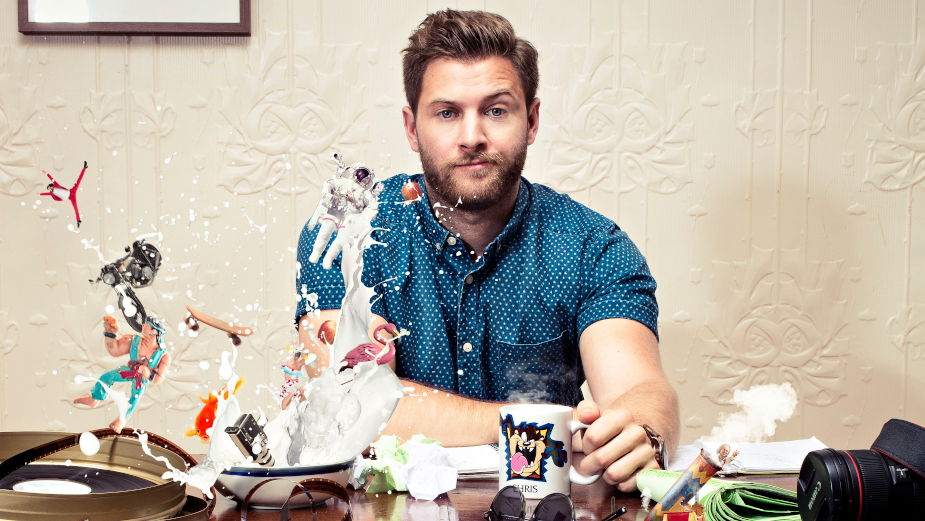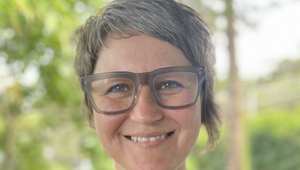
The Directors: Mitch Kennedy

Mitch Kennedy is an exciting and versatile director / DOP in Australia, creating content from TV commercials to music videos and short films. After completing a Bachelor of Film Production at the Queensland College of Art, Mitch quickly established himself in the advertising industry as one of the country’s most exciting emerging directors.
A director whose creative mind has a split personality, carrying two agendas, two different sets of values that working together result in a product that is unique. There is his passion for creating intriguing characters and engaging storytelling, facing off against the visual filmmaker, aiming to excite and immerse the viewer with visuals. A background in acting has him constantly striving for nuanced performances both dramatic and comedic, while his work as a cinematographer brings an artistic eye to the table.
Mitch’s perfect job has this collision of character-driven and visually rich styles of filmmaking. Specifically, a car commercial starring Zach Galifianakis.
Name: Mitch Kennedy
Location: Melbourne, Australia
Repped by/in: The Producers – Australia / Honor Society - USA
Awards: Cresta, Cannes Straight8, New York Festivals, Australian Cinematography Awards
Q > What elements of a script sets one apart from the other and what sort of scripts get you excited to shoot them?
I love when a challenge presents itself in a script. It could be a filmmaking challenge in how to physically shoot that crazy idea that everyone loves on the page. Or in terms of storytelling, where we need to build a complex narrative in next to no screen time. Commercials are an awesome creative playground for a director, looking for exciting new ways to bring agency ideas to life.
Q > How do you approach creating a treatment for a spot?
Scribbling. Lots of scribbling. After the initial agency brief I’ll spend a lot of time reflecting on the concept, making notes about characters, camera techniques and ideas for how to elevate the overall storytelling. It’s a bloody mess of text and depressingly bad shot sketches. Before I feel like the ideas are starting to take a turn towards terrible, I’ll then sit down and write something that fellow humans can comprehend.
My New Year’s resolution was to save a few trees and ditch my sketch book for an iPad and stylus. It feels good to go green, however I miss my ritual of pouring petrol over the pages of a losing pitch and settling them alight...sitting silently watching the flames...the archive button isn’t quite as satisfying.
Q > If the script is for a brand that you're not familiar with / don’t have a big affinity with or a market you're new to, how important is it for you to do research and understand that strategic and contextual side of the ad? If it’s important to you, how do you do it?
We’re coming in pretty late to the party by the time the script reaches production, so I use that first meeting with the agency creatives as a research exercise to get insight into the background of our story. The story of the brand, the product and what this particular campaign is trying to say. I find the most productive briefings spend less time reading every word of the voiceover together and spend more time discussing the tone of the commercial; the look, the feel and the life that this idea has already lived.
Q > For you, what is the most important working relationship for a director to have with another person in making an ad? And why?
If we were to say the director is Batman, then the agency creatives are Robin. The former is a bit more emotionally unstable and takes a lot of the limelight on set, but they wouldn’t get anywhere without the latter. Building really strong creative partnerships is hugely important to me and making sure we’re pushing one another to constantly make the idea better.
Also in this scenario a good producer would be Alfred. Guardian. Confidant. Trusted ally. They’re the mastermind behind the scenes working to make sure Batman’s outlandish plans can actually be possible. Or be there to bandage up the wounds. Usually a damaged ego.
Q > What type of work are you most passionate about - is there a particular genre or subject matter or style you are most drawn to?
Action-based scripts are really my flavour of the month at the moment. I love plotting how we’re going to shoot an elaborate piece of movement or sequence of action. I tend to work with scripts where I’m looking to inject elements of humour through my characters as well, working with what’s in the script or experimenting with improv. I’ve also done a heap of work with kids and actually think the unpredictability of young performers is awesome. I like to direct with a lot of instinctual choices on-set and when you have kids to work with it really tests those instincts. Changing your approach on the fly or being creative with how to get the shot. While occasionally suppressing your instinct to quit the business after working with the wrong kid.
Q > What misconception about you or your work do you most often encounter and why is it wrong?
I get the hipster label a lot because of my beard. I’m just really bad at shaving and don’t have a real job.
Q > Have you ever worked with a cost consultant and if so how have your experiences been?
I mentioned the good producers who are like Alfred protecting Batman? I’m lucky to have a few of those. They’re the barrier between myself and those tussles over costs. Occasionally you need to brainstorm how you can get the Batmobile working without an engine or wheels, but there’s always a solution somewhere.
Q > What’s the craziest problem you’ve come across in the course of a production – and how did you solve it?
We once bought a puppy during a shoot. The puppy Labrador we had lined up with the animal wrangler had a growth spurt in the days leading up to the shoot and by the time she got to set she was three times bigger than we needed for the gag to work. Cut to – my producer trying to convince dog breeders she wasn’t a crazy person for needing to pick up a new puppy within the hour. In the end we found a pup that needed a home, we got the shot and our Key Grip adopted her after the shoot. You know, just a regular day at the office.
Q > How do you strike the balance between being open / collaborative with the agency and brand client while also protecting the idea?
Sell the sh*t out of your idea. We’re in advertising after all, so I take the approach that if you believe an idea is going to make the campaign stronger, it’s on the director to convince everyone else that it’s the right call. I’ll do really detailed storyboards, sometimes animating them if it helps convey how the idea and story will play out. By the time it gets to the shoot, ideally everyone knows what they’ve signed up for and we can go about making an awesome spot. Picking your battles is also sometimes best. Yes, I love that red top on the background extra.
Q > What are your thoughts on opening up the production world to a more diverse pool of talent? Are you open to mentoring and apprenticeships on set?
I hope the mentoring pathways in the film industry are going to continue to be a really fruitful source of finding passionate storytellers from all backgrounds. I’ve been lucky to find myself on both sides of the process. With filmmaking being such a collaborative craft, I think everyone wins from creating an environment where there are diverse perspectives, ideas and life experiences on every project.
Q > How do you feel the pandemic is going to influence the way you work into the longer term? Have you picked up new habits that you feel will stick around for a long time?
The amount of time I need to wear pants has dramatically reduced. It is a welcome change.
Q > Your work is now presented in so many different formats - to what extent do you keep each in mind while you're working (and, equally, to what degree is it possible to do so)?
I feel the industry as a whole is beginning to better appreciate how different formats can be used for unique creative executions. It’s easy for us to export a commercial in 10 different aspects but is that the best use of each platform? To me what’s exciting is the increasing number of ways in which people are now consuming media and what opportunities that presents for commercial storytellers.
Q > What’s your relationship with new technology and, if at all, how do you incorporate future-facing tech into your work (e.g. virtual production, interactive storytelling, AI / data-driven visuals etc)?
I work a lot with visual effects and some of the advancements in technology there are really amazing. If I had my way, I’d storyboard every job in a VR studio with a virtual camera on my shoulder. Mocking up camera moves, experimenting with lenses and forming that middle step between envisioning the commercial and shooting the final product.
As I mentioned earlier, I’ve sacrificed my label as a handwritten note purist in order to go digital. My iPad has become my best friend over the course of pre-production and there are some unbelievable apps to help filmmakers. From marking up scripts, to sketching boards over location images and now using the augmented reality tech to place CG items into a physical scene while on recce in real time.
Q > Which pieces of work do you feel really show off what you do best – and why?
These four spots were quite fun to make, with some really lovely creative people and NOT ONE of the clients told me they thought the end result was crap. So I think we all did quite well on these. They apparently also sold a fair bit of the stuff that we were trying to sell, which is excellent.
- Need a Break?
- Dino Chase
- Twins
- The Holidays Handled















